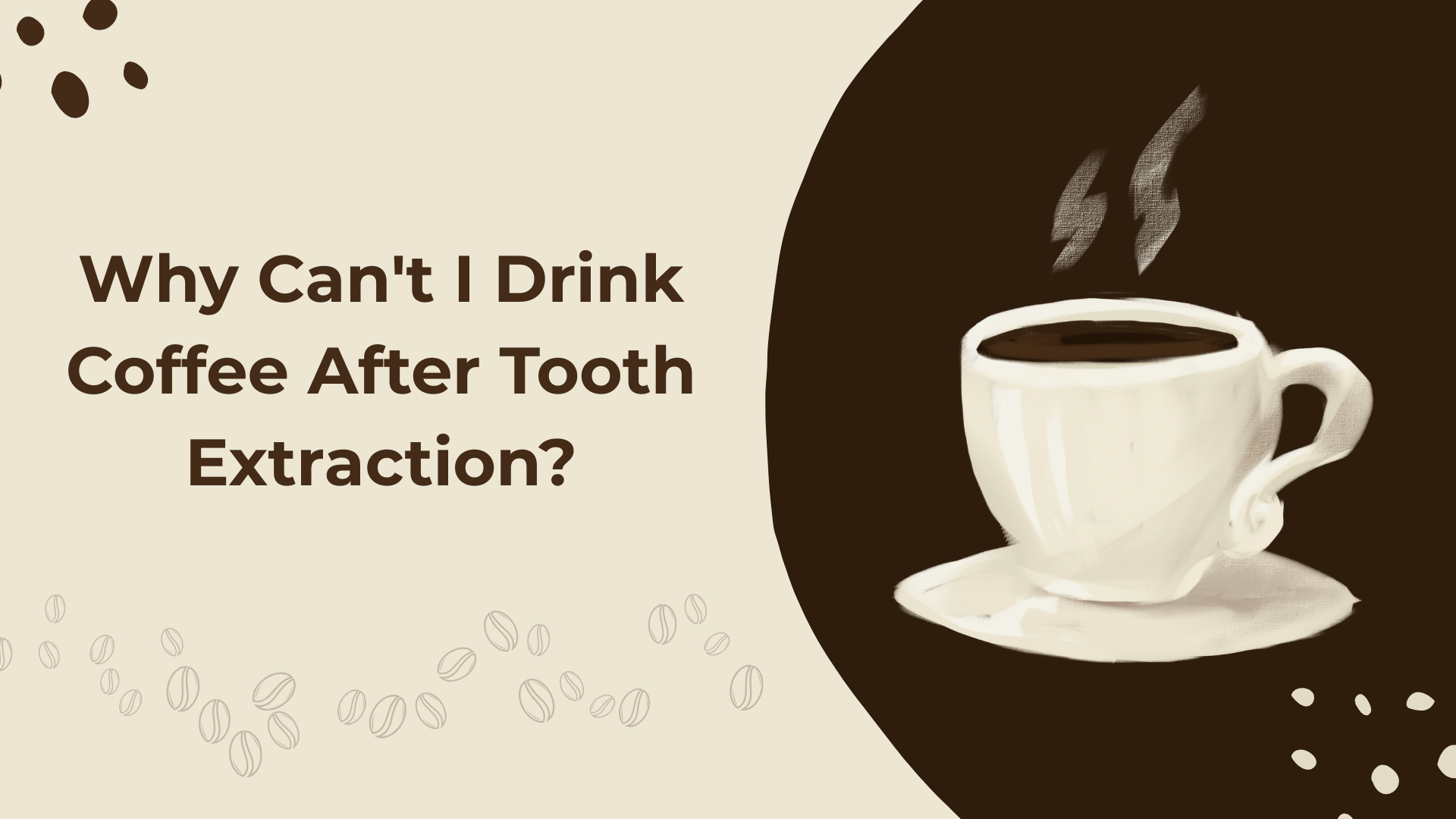If you’ve recently had a tooth extracted, you’re probably thinking about when you can go back to enjoying your favorite cup of coffee. I get it—coffee is such a big part of daily life for so many people! But after a tooth extraction, sipping on your beloved brew isn’t as simple as grabbing a mug and enjoying it. So, why can’t you drink coffee right after the procedure? Let’s dive into it in a way that’s easy to understand!
The Healing Process
First, let’s talk about what’s going on inside your mouth after a tooth extraction. When a tooth is removed, the area where it was—called the extraction site—needs time to heal. During the healing process, a blood clot forms over the site to protect it and help the bone and tissue regenerate. This blood clot is super important! If it gets disturbed or dislodged too early, it can lead to a painful condition called dry socket.
Now, this is where coffee comes into play.
The Effect of Coffee on Healing
Coffee, while delicious, can interfere with the healing process in a couple of ways. Let’s break it down:
1. Caffeine and Blood Flow
Coffee contains caffeine, which is a stimulant. This means it can increase your heart rate and cause blood vessels to constrict. Why does this matter? Well, when your blood vessels constrict, it can potentially interfere with the healing process, as your body is trying to restore blood flow to the extraction site. If the blood clot gets disturbed, it could lead to complications like dry socket, which is definitely not something you want to experience!
2. Temperature Matters
Hot coffee can also pose a problem. Right after a tooth extraction, your mouth is already sensitive, and hot liquids can cause irritation to the area. The heat could cause swelling or discomfort, and you don’t want to make things worse while you’re healing. Also, sipping hot coffee right after surgery could dislodge the blood clot if you’re not careful, leading to that dry socket situation again.
3. Acidity and Irritation
Coffee, especially the dark roasts, is quite acidic. This acidity can irritate your mouth and the sensitive tissue around the extraction site. If you’re still dealing with any swelling or tenderness after the procedure, this acid might make things feel a bit worse.
How Long Should You Wait?
So, how long should you hold off on your morning coffee? It depends on the type of extraction and your personal healing speed. Typically, it’s a good idea to wait at least 24 to 48 hours before drinking coffee again. That gives your body a chance to form a stable blood clot and start the healing process without any disturbances.
Once the initial healing phase is over, you can usually go back to drinking coffee. But here’s the thing—try not to go too crazy with the caffeine right away! It’s best to ease back into it and see how your mouth feels.
Can I Drink Cold Coffee?
If you’re absolutely craving coffee, there is a little workaround. Cold coffee might be a safer option in the early days after your extraction. Cold drinks tend to be less irritating to the extraction site and can actually help with any swelling or discomfort you might be feeling. Just be cautious about the sugar and cream levels, as too much of either can make your healing process a little trickier.
Tips for Easing Back into Coffee After Extraction
When you’re ready to bring coffee back into your life post-extraction, here are a few tips to make the process smoother:
- Start with lukewarm coffee: If you’re still sensitive, avoid hot drinks and stick with something that’s room temperature.
- Use a straw carefully: If you’re using a straw to drink your coffee, be careful! Sucking can create suction in your mouth and disturb the blood clot, leading to dry socket.
- Go easy on the caffeine: Start with a smaller cup or a weaker brew. You don’t want to overwhelm your body while it’s still healing.
Final Thoughts
While it can be tough to give up coffee, it’s important to remember that your mouth needs time to heal properly. Giving yourself a little break from your usual cup can help you avoid complications like dry socket, which could make your recovery much more painful. Once the initial healing period is over, you can start enjoying your coffee again, but just take it slow and listen to your body.
So, hang in there, and before you know it, you’ll be back to sipping your favorite coffee without a care in the world!
